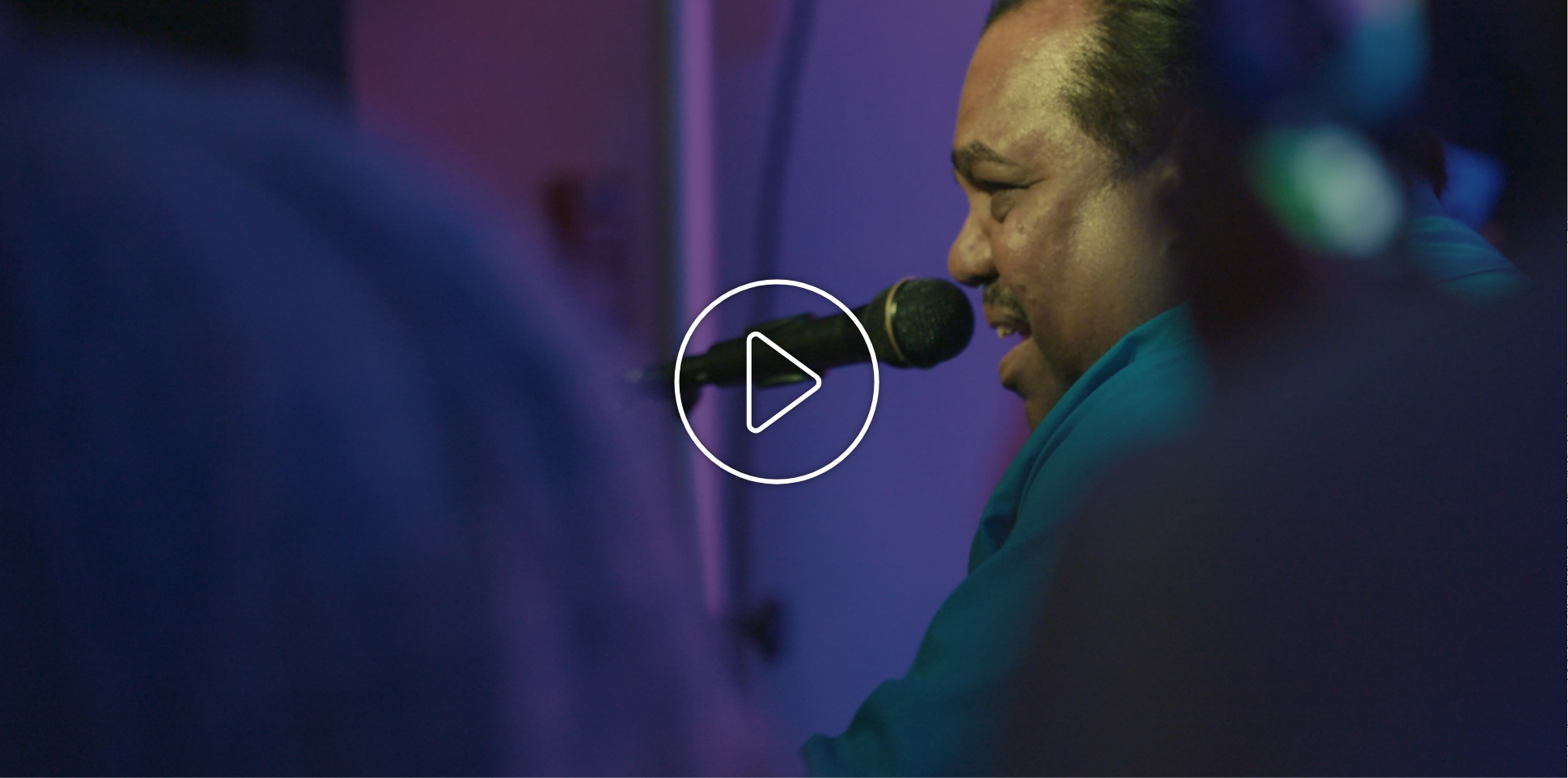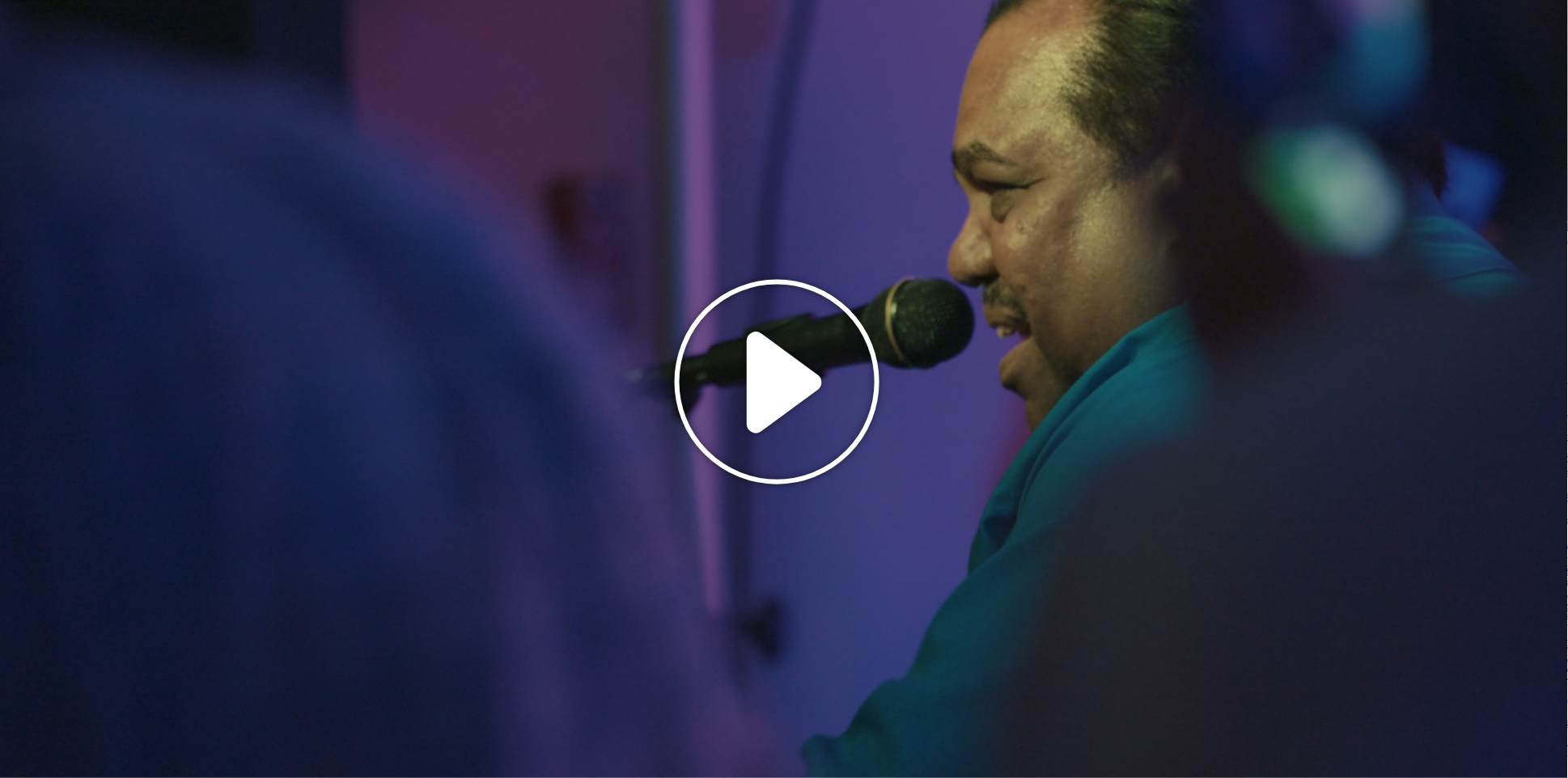INDIVIDUAL AWARD WINNER:
DARYL DAVIS
DARYL
DAVIS
DARYL
DAVIS


Daryl Davis is a blues musician who has worked with artists including Chuck Berry, Elvis Presley’s Jordanaires, Jerry Lee Lewis, and Bo Diddley. However, what Daryl is most known for is his work with members of the Ku Klux Klan. Daryl, an African American, has befriended members of the KKK for the past 30 years… with at least 200 of them renouncing their robes and former beliefs.
As the child of American foreign service officers, Daryl spent some of his childhood living abroad. He attended international schools, where his classes were filled with children from all over the world. Growing up with such diversity, Daryl was unaware of the racial issues that plagued American culture and politics at that time. When his family finally returned to the United States in the middle of the Civil Rights era, Daryl had a rough introduction to race politics. While marching in a parade as a Boy Scout with his troop, stones, bottles, and soda pop cans began striking Daryl. He innocently wondered, “Why don’t these people like the Boy Scouts?” He was unaware that as the only African American in the troop, he was the only one being hit—his parents had to explain this afterward.
Soon after this incident, Martin Luther King, Jr., was assassinated. Daryl began to comprehend the realities of racism, but still didn’t understand why it existed at all. This led Daryl to ask a question that he has since spent his life seeking to answer. He asked, “How can you hate me when you don’t even know me?”
Daryl couldn’t have anticipated that the first answer to this question would come from a member of the KKK! One night, Daryl was playing at the Silver Dollar Lounge, a bar in Frederick, Maryland. A man approached and complimented him, saying, “You know, this is the first time I ever heard a black man play piano like Jerry Lee Lewis.” They sat down at a table to discuss the origins of blues and boogie-woogie. Eventually the man revealed that he was a member of the KKK. He returned to the bar many times to hear Daryl play; gradually a relationship formed. Daryl recognized this budding friendship as an opportunity to answer the question that had remained with him since boyhood.
After that initial friendship, Daryl met hundreds of other KKK clansmen and women. During these encounters, he always listened to the other person’s perspective first before sharing his own perspective. Keeping the dialogue going is paramount because, “When two enemies are talking, they’re not fighting. It’s when the talking ceases that the ground becomes fertile for violence. If you spend five minutes with your worst enemy—it doesn’t have to be about race, it could be about anything… you will find that you both have something in common. As you build upon those commonalities, you’re forming a relationship and as you build about that relationship, you’re forming a friendship.”1 Daryl’s curiosity about and knowledge of the KKK, politics, history, and racism was so compelling to some clansmen and women that they began to question their own beliefs.
In seeking an answer to his question, “How can you hate me when you don’t even know me?” Daryl found not just answers but friends. Today, Daryl still meets with members of the KKK, with some crediting him for saving their lives. When they needed love and acceptance, Daryl extended his friendship across deep racial and ideological divides. Sitting with a former KKK member who is now one of his close friends, Daryl says, “We’re a family and this family is one that’s going to last.”
The individual Turn the World Outward Award is presented to Daryl Davis for reminding us that we are indeed all family.
1. Dwane Brown, "How One Man Convinced 200 Ku Klux Klan Members To Give Up Their Robes," NPR, August 20, 2017. https://www.npr.org/2017/08/20/544861933/how-one-man-convinced-200-ku-klux-klan-members-to-give-up-their-robes
